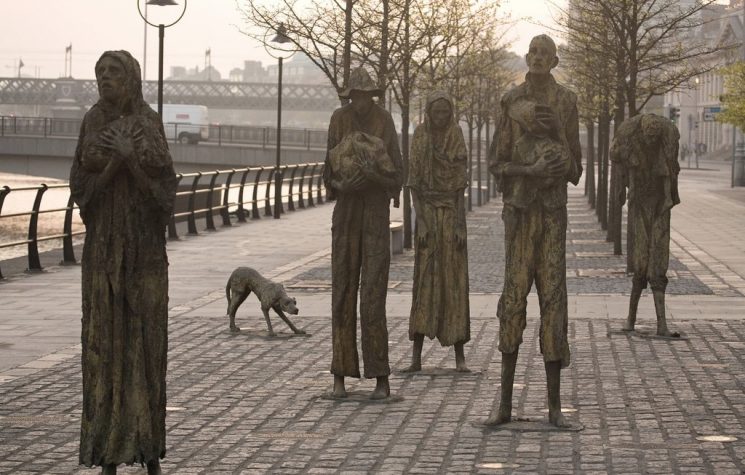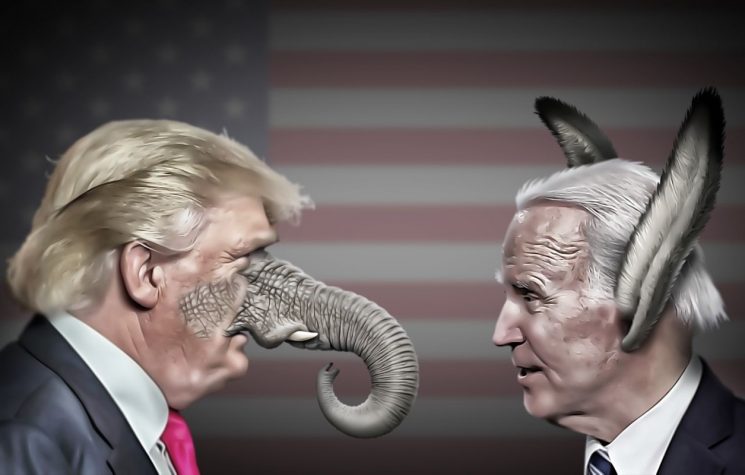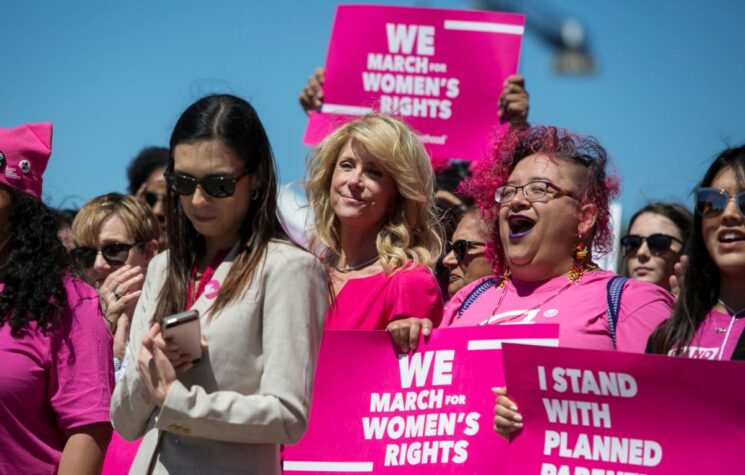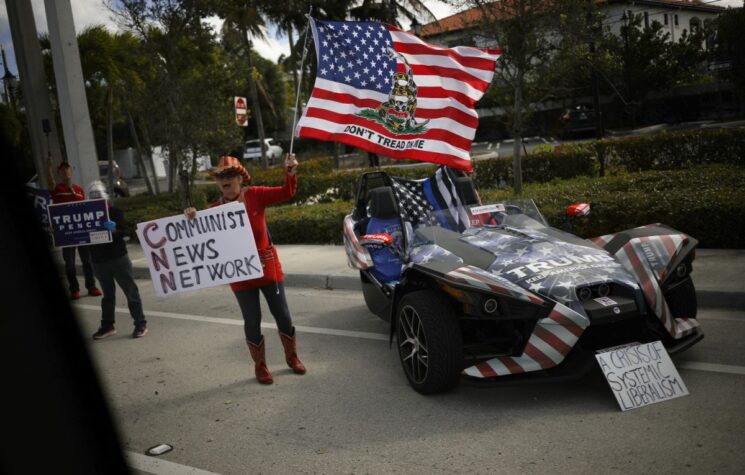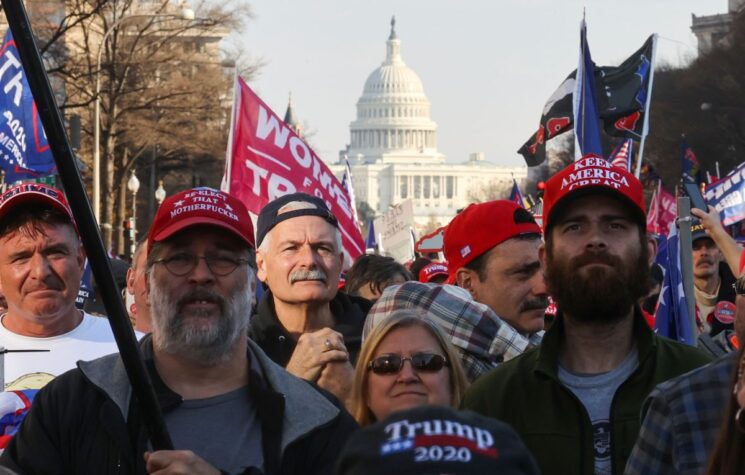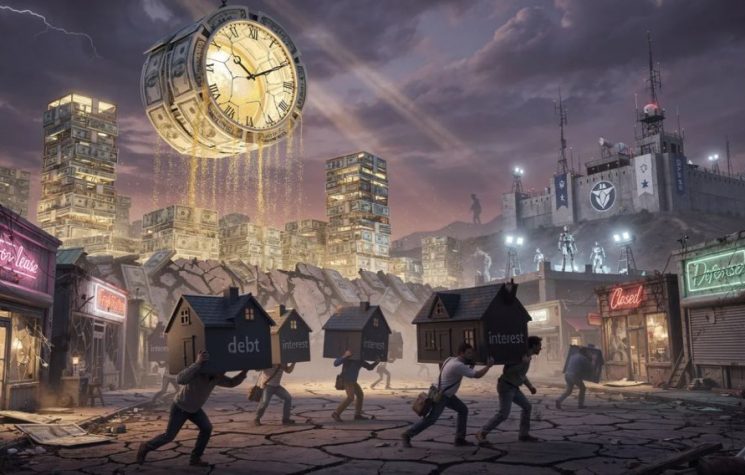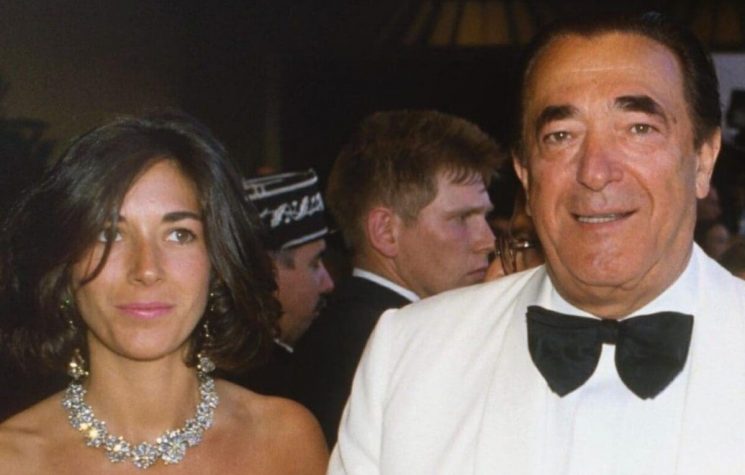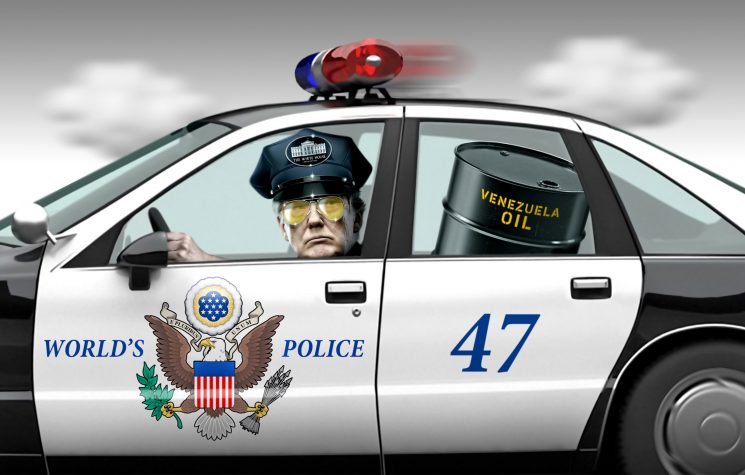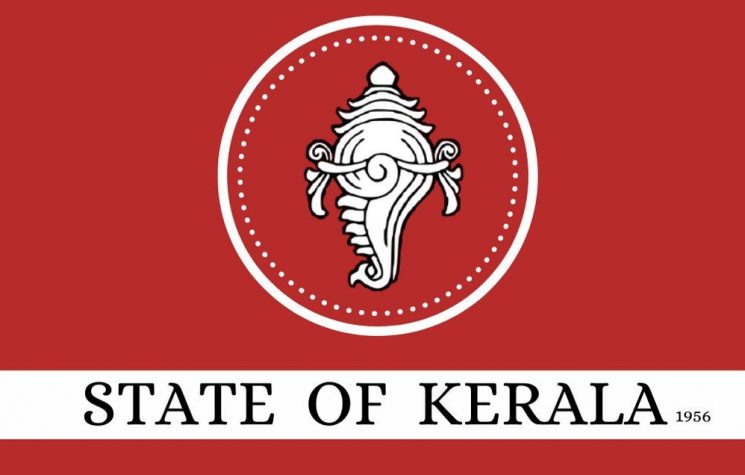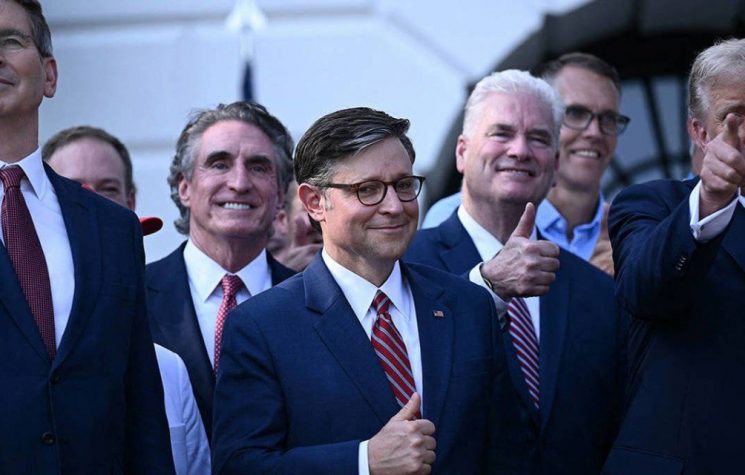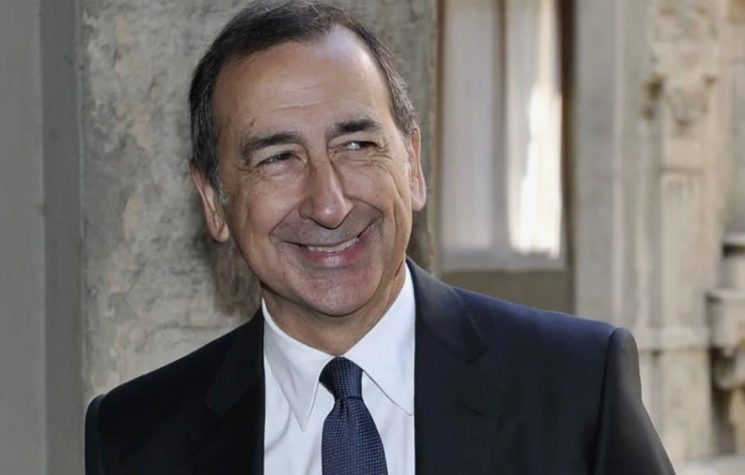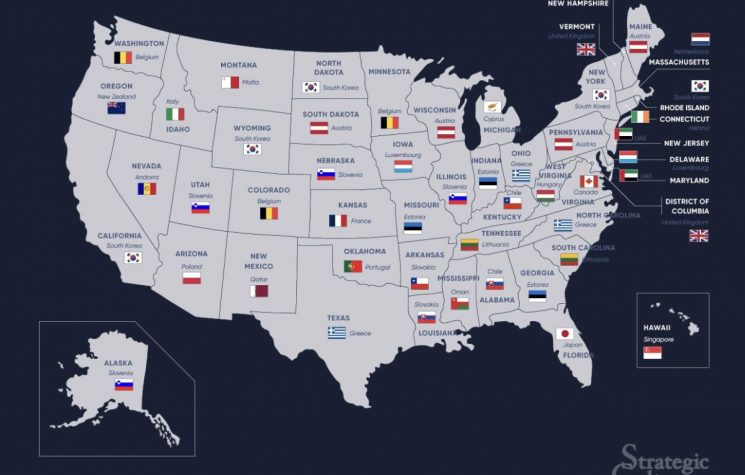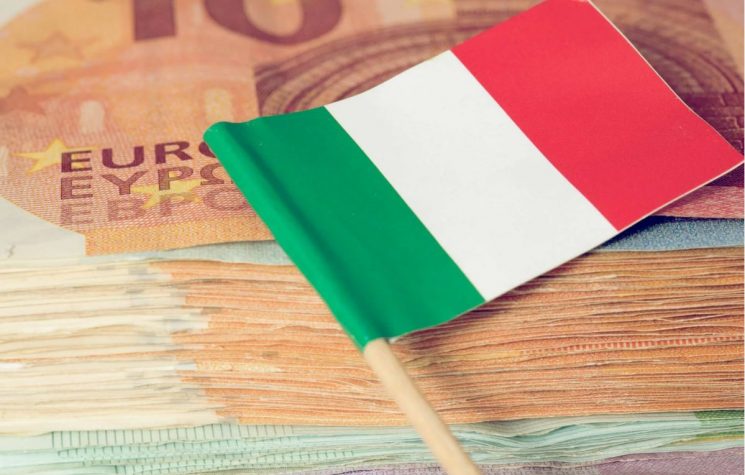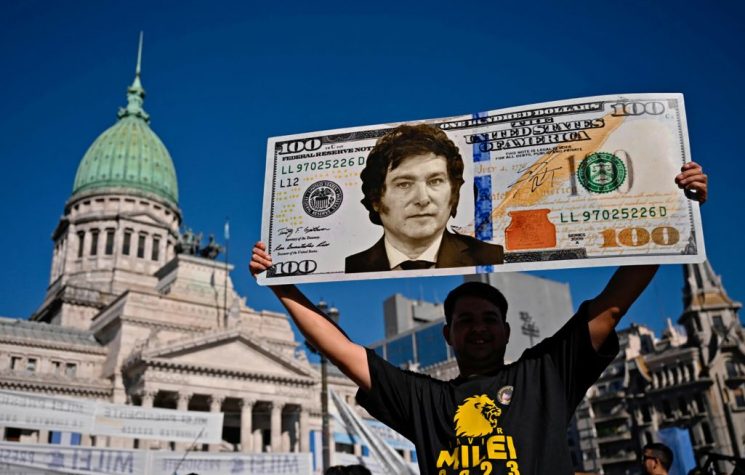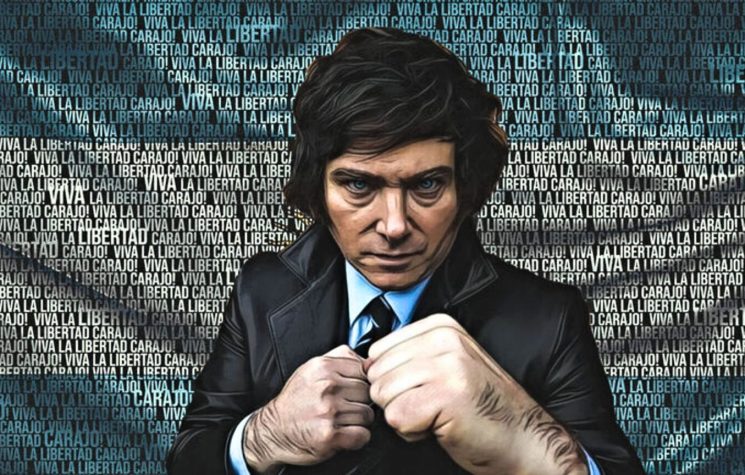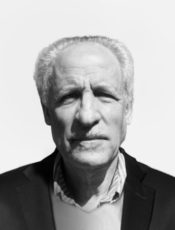According to the U.S. Federal Reserve’s table that’s headlined, “Distribution of Household Wealth in the U.S. since 1989”, the percentage of U.S. privately owned wealth which is held by the richest 1% has risen from 5% in 1990 to 36% today, more than a seven-fold increase. If it had instead been a twenty-fold increase, then the richest 1% would already own the entire country, but they instead seem to be heading to reach that 100% by around the year 2035. They’ve been roughly doubling their percentage of America’s privately owned wealth every decade since 1990; and, at that rate, they’d reach 72% by around the year 2030. Once they own everything, everybody else would be either working for them or in debt to them. The poor 99% would no longer be able to buy what the companies that the richest 1% own would be offering for sale. Obviously, an enormous economic crash is coming, but no one can say how soon before around the year 2035 that mega-crash will occur.
That table starts in 1989, so doesn’t show the prior figures, but other studies place the start of the post-WWII increase in America’s wealth-concentration at around the year 1981. Prior to that, it had been pretty unchanged, for decades. Maybe Ronald Reagan was largely responsible for the change, but none of the subsequent U.S. Presidents did anything to reverse his “Greed is good!” policies.
Here is from Reagan’s interview, in the libertarian Reason magazine, on 1 July 1975, headlining “Inside Ronald Reagan”:
REASON: Are there any particular books or authors or economists that have been influential in terms of your intellectual development?
REAGAN: Oh, it would be hard for me to pinpoint anything in that category. I’m an inveterate reader. Bastiat and von Mises, and Hayek and Hazlitt – I’m one for the classical economists.
They had been the formulators of the “Greed is good!” philosophy, now called libertarianism (which in continental Europe is instead called “neoliberalism”). Prior to President Reagan, no U.S. President had been a libertarian. But the losing Presidential candidate in 1964, Republican Barry Goldwater, had been a libertarian. So, the “Greed is good!” philosophy had been respectable in the Republican Party for at least 16 years before a libertarian became elected President in 1980. Then, after Reagan, America has been in the Reagan Era, ever since. The Democratic Party merely adds hypocrisy to it, by condemning libertarianism. That stance (libertarianism while condemning libertarianism) is nowadays called “liberalism.” Such ideological hypocrisy has become a secular religion, which is believed especially by many religious people in America — “Let God do it!” (Otherwise called: adherence to natural law.) Among some, it is called “Prosperity Theology”. Since it effectively inducts the super-rich into a new type of sainthood, America’s billionaires — especially Republican ones — would never object to it. After all: it’s just another form of libertarianism, which already deifies the rich and despises the poor.
As-of 2014, the top 0.1% of Americans owned almost as much wealth as the bottom 90% did. The top 0.1% owned more than the entire bottom 80% did. Furthermore, America’s billionaires now have an absolute veto-power against any candidate in both Parties’ Presidential primaries, such as Bernie Sanders, whom no billionaire wants to become President. Only candidates who are backed by at least a few billionaires has any realistic chance at all. A candidate whom no billionaire backs is not possible to win the nomination of either of the major Parties. Unfortunately, enough Americans are manipulable enough to be deceived by the ceaseless propaganda that’s funded by the super-rich. Any candidate who opposes the super-rich has virtually no chance to win any election to the federal Government. Many federal officials — and almost every Republican one — even overtly champion the super-rich and at least implicitly denigrate labor and deify capital “the entrepreneur”), but such a situation would be impossible in any nation which has an informed and sane electorate, because it entails the vast majority of voters voting against themselves. People don’t do that unless they are deceived (such as to think “I am an entrepreneur” because they own, maybe, a hamburger stand, or receive some rental income). (Anybody who isn’t backed by at least venture capitalists is no “entrepreneur” that federal politicians are likely to care about.)
This is the reason why, today, 36% of America’s private wealth is owned by top-one-percenters, whereas in 1990 only 5% was. “Greed is good!” makes that okay.
A bigger and bigger percentage of U.S. private wealth is going into the stock markets, because more and more of it is sheer excess that’s beyond the ability of its owners to spend for their own consumption. Furthermore, because the Covid-19 crisis hits workers the hardest, and the stock markets have been booming in 2020, the percentage of America’s private wealth that’s owned by the richest 1% is getting a special boost this year. David Sirota’s investigative news blog The Daily Poster headlined on December 30th “10 Stats That Will Blow Your Mind” and the top four were:
- The total cost of $2,000 checks ($465 billion) is less than half the amount that American billionaires have made during the pandemic ($1 trillion). The total cost of the checks is less than the amount that just 16 American billionaires increased their net worth by during the pandemic ($471 billion).
- Jeff Bezos and Elon Musk gained more wealth during the pandemic ($158 billion) than Congress just authorized for additional unemployment benefits for millions of Americans ($120 billion).
- Jeff Bezos’s personal wealth increased more every second of 2020 ($2,800) than Congress is considering giving Americans who are facing eviction, starvation and bankruptcy ($2,000).
- Congressional lawmakers are being paid $3,300 of government money every week to come up with ways to block $2,000 checks to millions of Americans.
During this period of more and more of the country being owned by the richest 1%, more and more of the Government is also being controlled by the richest 1%, because money brings power (such as the ability to hire and fire employees and other agents), and especially it brings the power to hire lobbyists, and to do favors for the members of Congress, and to hire everyone who retires from government-service, including not only former elected officials, but also former career civil servants. The revolving door between service to the Government, and service to the people who fund election-campaigns (the richest 1%), spins ever-faster, as the richest 1% own more and more of the country. If they will own 100% of the private wealth, they will also control the Government 100%, and therefore effectively own 100% of the government wealth, too. What would the U.S. Constitution say about that? It would be an absolute dictatorship by the richest 1%. But what would the U.S. Constitution say about that?
The turning-point was actually in 1976, the U.S. Supreme Court’s unanimous Buckley v. Valeo decision (but with Justice Byron White dissenting in part), which said that there can be no limits placed on an individual’s total political donations, because that money is “speech” and the U.S. Constitution’s First Amendment prohibits any laws against “speech” — such as against lying, or against any other form of expression, no matter how harmful (and what could possibly be more harmful that allowing the government itself to be bought?) — the Court ruled that if more money means more control over the Government, then that’s okay, but Justice Byron White, in his lone and grandstanding objection said that “Congress and this Court’s cases have recognized this as a mortal danger against which effective preventive and curative steps must be taken.” (He basically wanted to punt the entire issue back to the legislators, who were now legally hamstrung against dealing with it, because of the unanimous decision, which ‘Justice’ White himself was joining in to sign onto.) That unanimous equation of “money” with “speech” was the beginning of the end of America’s till-then-limited democracy, and it marked the beginning of today’s American aristocracy — America’s aristocracy of wealth. But were America’s Founders in favor of creating an aristocracy? Wasn’t their overriding objective to prevent any such thing from taking over here? Who hired these ‘Justices’? Were they actually traitors?
If it started on any date, that’s the date: 30 January 1976.








